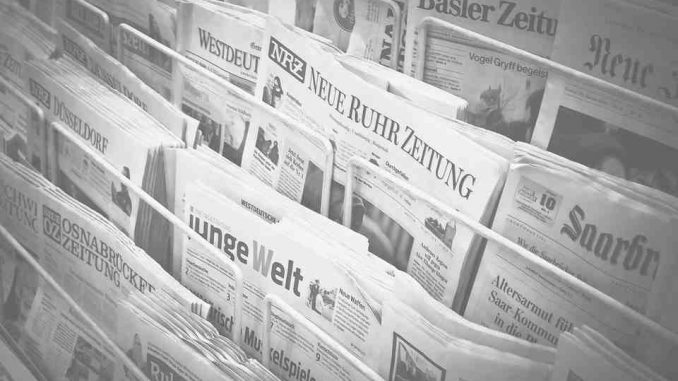
Politicians claim that government spending is limited by taxes: “You cannot spend what you don’t have”. Nonsense explains Richard Murphy. Governments spend the money they print, something only they are allowed to do. Thus there is always money there. Taxes are simply an instrument to control inflation. Fiscal policy is about inter-acting variables as Murphy clarifies in his article.
Richard Murphy is Professor of Practice in International Political Economy, City University of London. He campaigns on issues of tax avoidance and tax evasion, as well as blogging at Tax Research UK
Cross-posted from Tax Research UK
There was some discussion here yesterday on the relationship between tax and government spending. As I pointed I out, this is by no means a direct relationship: the reality is that tax does not fund government spending, all of which can in principle be funded by ‘money printing’ or borrowing.
It is, of course, very unlikely that this would actually happen: inflation would rapidly destroy the value of a currency in this situation and the willingness of people to lend would quickly expire. This means that tax, which is used to balance the equation between government spending, money creation and borrowing, is an essential fact of economic life. The relationship can be formally summarised as:
G = T + ∆B + ∆M
Where:
G = Government spending
T = Net tax receipts
B = Borrowing (and so ∆B is the change in borrowing in a period)
M = Government created money (and so ∆M is the change in that sum during a period).
In this context the purpose of tax is to achieve a number of goals, none directly related to spending:
- Reclaiming the money the government has spent into the economy. As already noted, it may appear that tax revenue is being used to pay for government services supplied but that is not true: government spending always comes out of funds the government borrows from its central bank. Tax, in that case, reclaims the money spent to prevent excessive inflation. The amount reclaimed is that which is considered sufficient to leave the desired rate of inflation in the economy.
- Ratifying the value of money. Because a government requires that tax be paid using the currency that it creates (simply because that’s the currency it bills in) that currency has for all practical purposes to be used in the economy for which it is responsible, assuming that tax forms a significant part of people’s total liabilities. The payment of tax does, therefore, give a currency its value in exchange and as a result passes control of an economy to the government that charges that tax. This makes tax an absolutely fundamental component in macroeconomic policy.
- Reorganising the economy. Fiscal and monetary policy are the two fundamental tools available to a government to manage its economy, assuming it has its own currency. As the explanation already offered has shown, money creation and taxation are the flip side of each other. Tax is then an integral part of macroeconomic policy and so of reorganising the economy to meet social and economic goals.
- Redistributing income and wealth within the economy. Experience has shown that market economies are very good at concentrating income and wealth in the hands of a few people in a society. At the same time economics makes clear that this is harmful to the prosperity of a society as a whole because it seriously reduces overall levels of demand in the economy. Redistribution of income and wealth is then an essential function that any Government must undertake and appropriately designed taxes are a proven and effective method for delivering this policy.
- Repricing goods and services. Markets cannot always price the externalities of the goods and services they supply or reflect social priorities. Tax permits repricing of goods and services to reflect these facts.
- Raising representation in a democracy. The fact is that if people know they pay tax they vote. This only seems to be true, however, for income taxes. That’s why it is important that people are in that tax system. When they are they want a say on how the system works and democracy is enhanced as a result.
When this is properly understood by governments we might get some decent economic policy. And as the formula shows, it’s not exactly rocket science and yet it is apparently nigh on impossible to get politicians (and others) to accept this reality which is why we perpetually end up with the fascicle question whenver a new poliucy is proposed of ‘how are you going to pay for it?’, which in itself assumes that the above variables are independent of each other, when they are not. But that’s the subject of another blog.


Be the first to comment